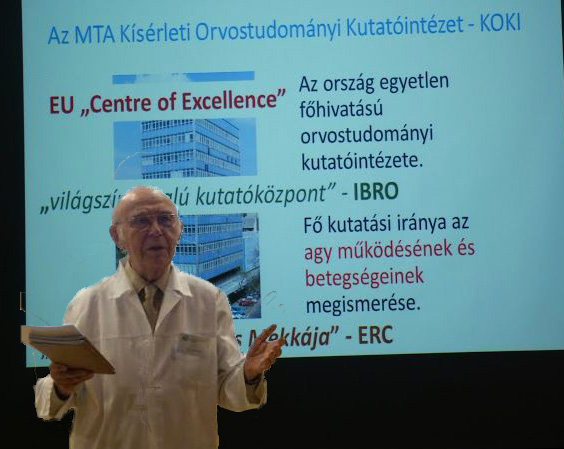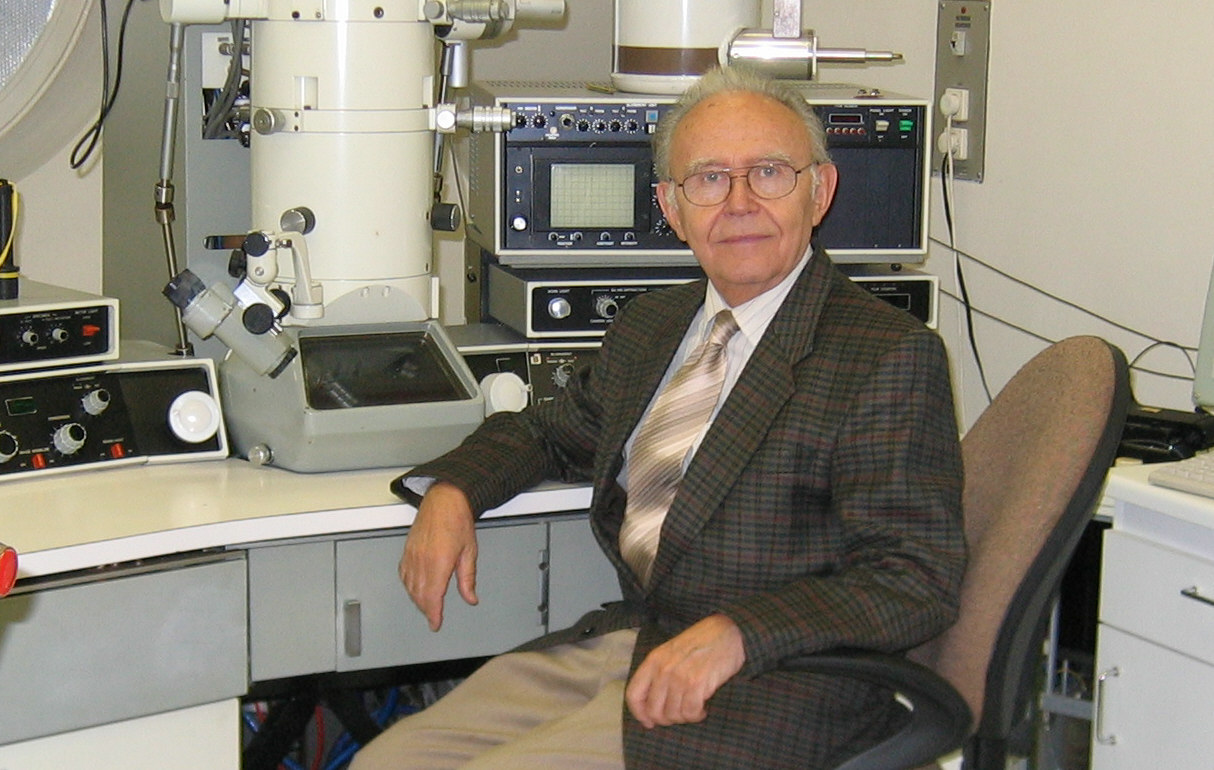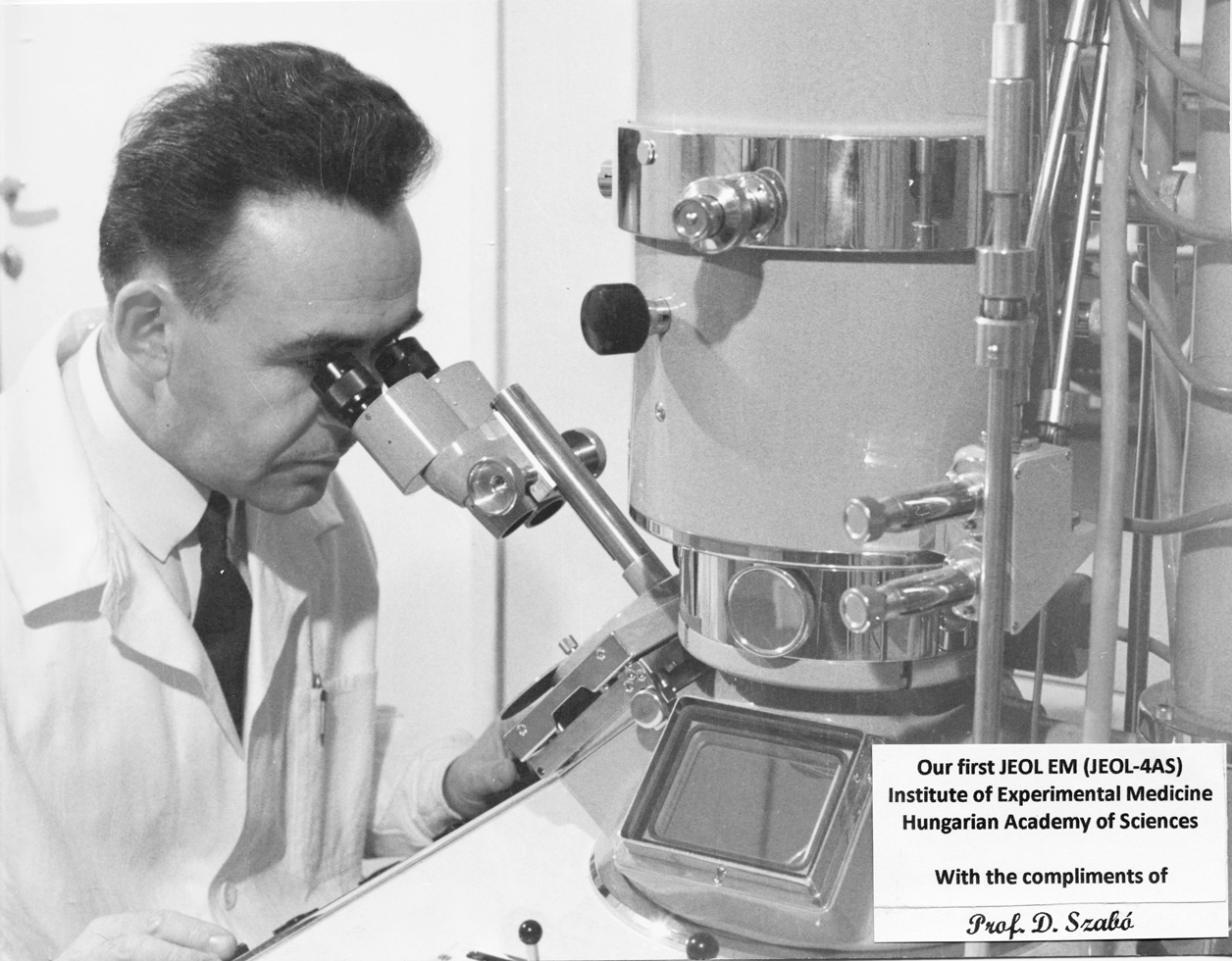100
On July 12, Dezső Szabó, professor emeritus at our institute, celebrated his 100th birthday. This anniversary is impressive in itself, but Dezső deserves much more respect than that! An exceptional birthday for an exceptional person.
Perhaps for geologists, astronomers, and other practitioners of enchanted fields, 100 only means something in terms of millions of years or light years, but however you look at it, one hundred is one of those fairy-tale numbers, like one, three, seven, and, I think, twelve.
Hundred years of solitude—we read or hear it, and immediately find ourselves in that magical world, which, only according to the novel's author Gabriel García Márquez, is perfectly realistic.
The centurion of the feared army of ancient Rome led a centuria, or company of one hundred men. This name became the basis for the word "century," which came into use around 1650. Although some historians refer to long and short centuries based on significant events, for most people, a century is always a hundred years.
Our institute's professor emeritus, Dezső Szabó, or Uncle Dezső, a member of the "great generation" of Hungarian microscopists, celebrated his 100th birthday on July 12, 2025.
After receiving his degree from the Faculty of General Medicine at the Budapest University of Medical Sciences in 1953, he began working at the Institute of Pathology and Experimental Cancer Research, led by Professor József Baló. During his ten years there, he obtained a specialist qualification in pathology and histopathology, introduced polarisation microscopy into pathology teaching, and was probably the first in the country to use the then brand-new electron microscope for pathological investigations. One of the early and perhaps most memorable successes of his research work at the Institute of Pathology was the article he co-authored with Ilona Banga and József Baló in Nature in 1954 (Banga, Ilona, Baló József and Szabó, Dezső. “Contraction and Relaxation of Collagen Fibres.” Nature 174 (1954): 788.)
Knowing only this much about Dr. Dezső Szabó's achievements to date, we can only agree that in 1963, the organizers of the Institute of Experimental Medicine, which was still under construction at the time, approached him and asked him to take on the organization and management of the electron microscope laboratory to be established at the new institute. He organized the installation of the first electron microscope here and has been following the development of microscopy ever since. In addition to teaching generations of microscopists, until the outbreak of the Covid pandemic, he was the main organizer of the Hungarian Science Festival lecture series at our place, selected our speakers. After their arrival, the accompanying teachers of the students, whether they came from the countryside or Budapest, always asked him first.

Since 1963, only Covid-19 has prevented him from coming to the institute, but not from continuing his work. He is now writing the history of KOKI at home.
Over the years, there have been many personnel changes at the institute. Some retired, others went abroad after obtaining their PhDs to study and gain experience, and with new undergraduate and PhD students, the average age of researchers has become younger. Today, there are many who only recognize him, rather than knowing him. However, this has not changed Dezső's close relationship with the institute.
At a dinner held in honor of his 100th birthday on July 14, 2025, at the renowned Schieszl restaurant in Budakalász, frequented by many celebrities, he was convinced that those who knew and respected him also loved him. What's more, they loved him more than he ever thought possible. He was touched by the sincere, warm tone of the first toast, and he greatly appreciated that one of his dear colleagues had collected and printed out for everyone what had been published about him in the press during his long and successful life. He was amazed that those he had hardly seen in the past five years were so happy to see him. He was visibly delighted with his gifts, but perhaps most of all because he felt that each one was personal.
As befits him, he had prepared a short speech. He wanted to express his gratitude and look back a little on the past 62 years he spent in the institute. His speech, as we have come to expect from him, was not without humor, nor was it without irony directed at himself.
He received the most applause for his answer to a question about his future plans, using a phrase known to be employed by fearless politicians even in dangerous situations: Business as usual.
We wish you continued good health, good spirits, and good work, Uncle Dezső!








